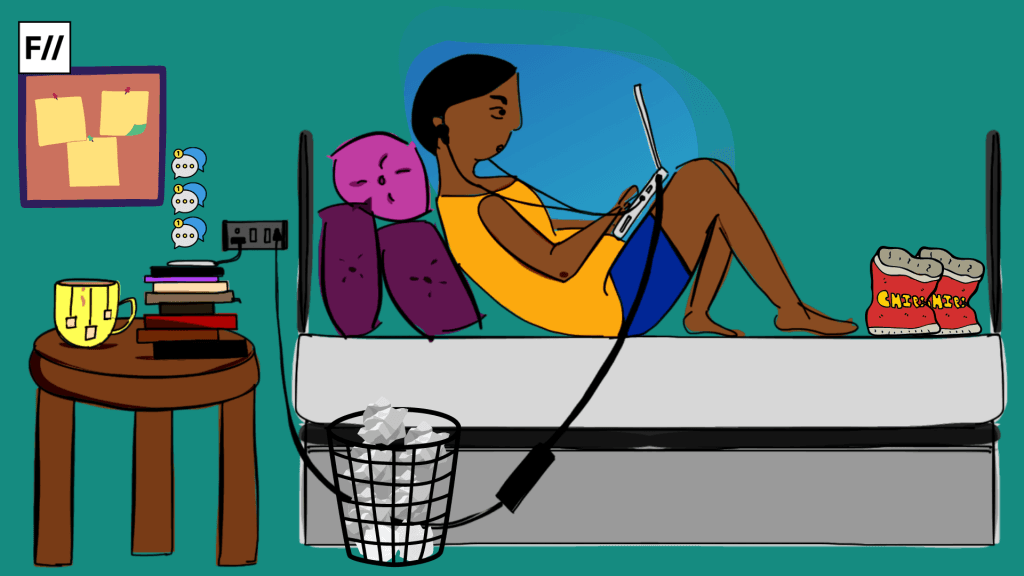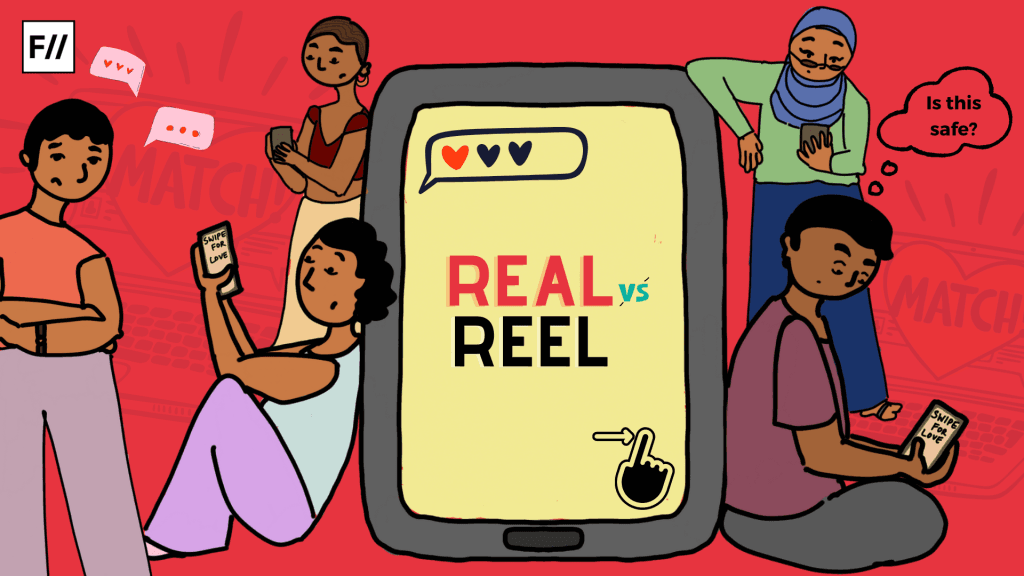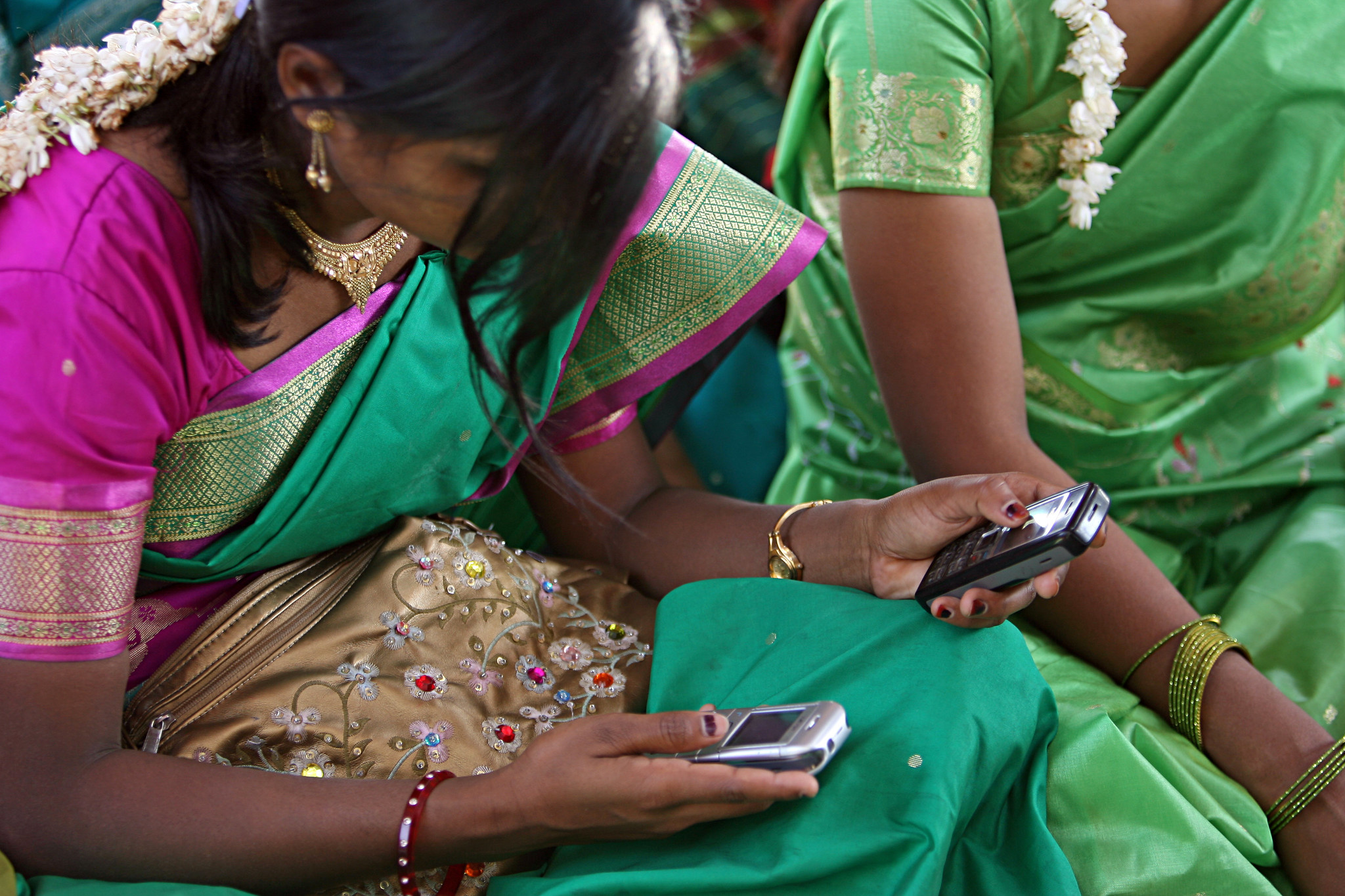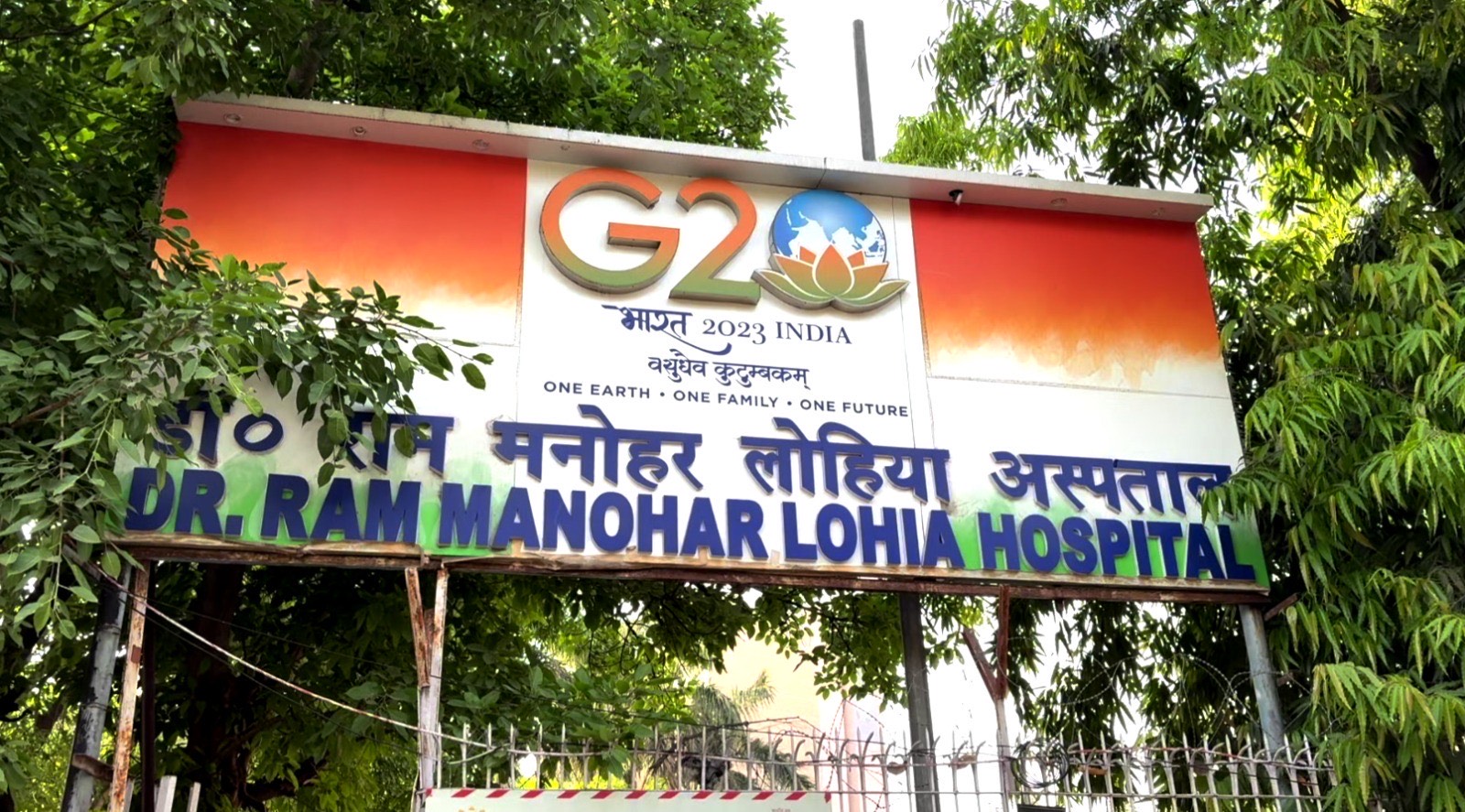‘I feel more comfortable sharing my day-to-day happenings in the group because there’s no one else who listens to me. I feel relaxed once I post what’s bothering me, knowing there are women who respond.’
For 26-year-old Asma*, a homemaker in South Kashmir, a simple post can feel like a lifeline. In a world where women are taught to stay silent and emotional pain is often dismissed or stigmatised, she has found her safe space— not in a clinic or a family circle—but in a digital sisterhood.
In Kashmir, two social media groups are becoming a big support system for thousands of women. Wasitoon (Female Friendship) and Yakjut (Unity) are helping women feel stronger, more confident, and less alone. These groups started as safe spaces where women could share their thoughts and feelings freely. Now, they have become more than that. Women talk about mental health, support each other during tough times, and help each other start small businesses.
From dealing with stress and anxiety to learning how to earn from home, these groups are quietly changing the lives of many women across Kashmir.
In a region nestled between beauty and conflict, the digital age is redefining the meaning of voice, space, and agency for women. For decades, entrenched patriarchy, economic instability, and political turmoil silenced the stories of Kashmiri women. But today, a quiet revolution is underway—not in the streets, but through screens, hashtags, and anonymous posts. Social media, once dismissed as a distraction, is now a force of transformation and empowerment.
Platforms like Facebook, Instagram, Twitter (now X), and WhatsApp are doing what years of societal inertia could not: giving Kashmiri women the power to be heard. They are no longer passive subjects in narratives written by others. Instead, they are taking control, telling their stories, and shaping their futures.
‘For generations, our stories have remained unheard,’ says the moderator of Wasitoon, a women-led digital support group based in Kashmir. ‘What inspired me to help create and support this group was the need for a safe and understanding space where women could share their stories without judgement. I have always believed in the power of community and sisterhood.’
Her group, hosted primarily on WhatsApp and Facebook, has become a sanctuary for women to discuss everything from domestic violence to mental health and career dilemmas to motherhood. What makes this space special is its ethos—safety, empathy, and confidentiality.
‘One of the greatest challenges has been maintaining respect and trust within the group,’ the moderator continues. ‘Especially when dealing with sensitive issues like domestic violence or mental health. We try our best to approach these topics with empathy, keep discussions confidential, and encourage professional support where needed.’
These digital forums are truly revolutionary in a region where discussing personal issues is often considered taboo. They allow for anonymity—a vital feature in conservative settings—and offer immediate peer feedback, advice, and emotional support.
‘Yes, we have seen real impact,’ the moderator of Wasitoon affirms. ‘From women starting small businesses and becoming financially independent to others finding the courage to speak up, heal, and even support each other through tough times—it is truly a beautiful thing to witness.’
Indeed, the rise of digital sisterhood in Kashmir echoes global trends. According to a 2024 Statista report, Facebook remains the world’s most used social media platform, followed by Instagram and Twitter. These platforms are no longer just avenues for entertainment: they are powerful tools for advocacy and healing. This shift is especially significant in conflict-ridden regions like Kashmir, where traditional mental health support and public platforms for discourse are severely limited. Here, social media becomes not just a platform but a lifeline.
Mental health, solidarity, social media and the rise of peer support
Dr Zoya Mir, a clinical psychologist and founder of Psychlite, a Srinagar-based psychology clinic, believes the role of social media in mental health awareness is both significant and necessary. ‘Kashmiri women face the brunt of a close-knit culture, repressed emotional expression, and an unconditional caregiving pattern which slowly burdens mental health,’ Dr Zoya explains. ‘Domestic violence and societal expectations often contribute to psychological distress.‘

Many women, she says, are taught from an early age to suppress their desires, prioritise others, and be compliant. This internalisation leads to chronic self-doubt, anxiety, and even symptoms that resemble emotionally unstable personality disorders.
‘In high-stress, emotionally repressive environments,’ she continues, ‘women may develop traits such as extreme mood swings, impulsivity, or intense fear of abandonment. These are often misunderstood or pathologised without recognising the prolonged emotional neglect behind them.’
One of the most under-discussed mental health issues in Kashmir, according to Dr. Zoya, is postpartum depression. ‘In a society where motherhood is idealised and emotional hardship is dismissed as weakness, new mothers are left to suffer silently. Many experience intense sadness, anxiety, or detachment, but the cultural pressure to “bounce back” prevents them from seeking help.’
‘In the face of limited access to professional therapy and the stigma around mental health, social media communities are emerging as vital safe spaces,’ Dr. Zoya emphasises. ‘WhatsApp groups, Instagram pages, and anonymous forums allow Kashmiri women to connect, share, and seek peer support—especially on taboo topics like postpartum depression, sexual harassment, or family pressure.’
One member of such a group put it simply: ‘I feel more comfortable sharing my day-to-day happenings in the group because there’s no one else who listens to me. I feel relaxed once I post what’s bothering me, knowing there are women who respond.’
Dr. Zoya adds, ‘Safe online spaces provide not just relief but validation. They allow women to tell their stories without fear of judgement and, in doing so, help others feel less alone.’
When asked whether digital platforms could replace therapy, Dr. Zoya is clear: ‘While digital platforms can’t substitute clinical therapy, they serve as powerful complementary tools. They bridge the gap between silence and support—encouraging help-seeking behaviour, spreading awareness, and building micro-communities of care.’
For many Kashmiri women, these micro-communities have become indispensable. They turn to social media to discuss educational aspirations, career choices, and relationship struggles—topics often brushed under the carpet in traditional households.
‘Whenever I’m in a dilemma, I post it on Facebook,’ shares a 28-year-old postgraduate student from Baramulla. ‘I get instant replies from women of different backgrounds. Their experiences help me figure out my own way. Sometimes all you need is someone who gets it.’
This immediacy and relatability are what make social media so effective. Unlike formal institutions, these platforms provide real-time peer responses that are rooted in lived experience rather than abstract theory.
Through these digital dialogues, women are finding not only answers but agency. Whether it’s finding the courage to enrol in higher education, asking for divorce in an abusive marriage, or launching an online business, these decisions are increasingly supported—and sometimes even inspired—by digital interactions.
In the process, a collective sense of empowerment is growing. These platforms are fostering a new kind of decision-making: one that is collaborative, confidence-building, and deeply personal.
From screens to strength: Empowerment, enterprise, and a new digital sisterhood
‘Social media provides us with access to other women’s journeys,’ says a young entrepreneur from Anantnag. ‘I see someone starting a small home-based brand and it motivates me. It makes me feel like, if she can do it, so can I.’

‘I once posted about my marital issues in Yakjut,’ says Rifat, a 31-year-old woman from Srinagar. ‘I didn’t expect much, but the responses changed everything. The advice I received from the Yakjut group gave me a new perspective and actually helped me save my relationship.’
Yakjut is another such digital community, with thousands of followers and the same goal: to create a safe platform where women can express themselves without fear or judgement. From sharing daily struggles to asking for advice on marriage, parenting, or mental health—Yakjut has become a space where women uplift each other through honesty and empathy.
Beyond emotional support, digital platforms are also offering economic opportunities. Online marketplaces, home-run Instagram stores, and freelance gigs are helping women generate income—often for the first time. In a conflict-struck economy with few safe public opportunities for women, this shift is monumental.
Yet, challenges persist. Misuse of content, online trolling, and digital surveillance remain concerns. Moreover, internet shutdowns—frequent in Kashmir—disrupt the very networks that women rely on for support.
As cultural critic Tejaswini Niranjana (2007) noted, feminist discourse often involves navigating generational divides and resisting mainstream erasure. Social media has become the battleground where these contestations play out.
It’s a space where Kashmiri women are no longer waiting to be represented—they are representing themselves. Through tweets, reels, blogs, and stories, they are creating visibility, demanding justice, and redefining gender norms.
This self-representation also transcends geographic boundaries. Many digital communities connect women from across Kashmir’s diverse ethnic and religious backgrounds—facilitating a broader dialogue about identity, resilience, and solidarity.
‘We’re finally talking to each other across silences,’ remarks a women’s rights researcher based in Delhi. ‘It’s remarkable how a smartphone has become a bridge between someone in Shopian and someone in Sopore.‘
In a region where public platforms are often inaccessible and institutional support unreliable, the screen has become a stage, the phone a megaphone.
‘For women, especially in conservative or conflict-affected societies like Kashmir, safe spaces are not just helpful—they are essential,’ Dr. Zoya reiterates. ‘They allow for expression, validation, and emotional resilience. They are often the first step toward healing.’
As Kashmiri women continue to navigate an intersection of trauma, tradition, and transformation, one thing is clear: they are no longer waiting to be given a voice—they are using the ones they have.
Through digital platforms, they are not only seeking advice or support—they are building communities, creating economies, and rewriting the narratives of what it means to be a woman in Kashmir today.
In the most silenced corners, the sound of change is often a whisper. In Kashmir, that whisper is growing louder—one post, one story, one sisterhood at a time. Like Wasitoon, Yakjut too thrives on the values of empathy, solidarity, and confidentiality—offering women in Kashmir not just advice, but a sense of belonging.
* names have been changed to protect the identity




